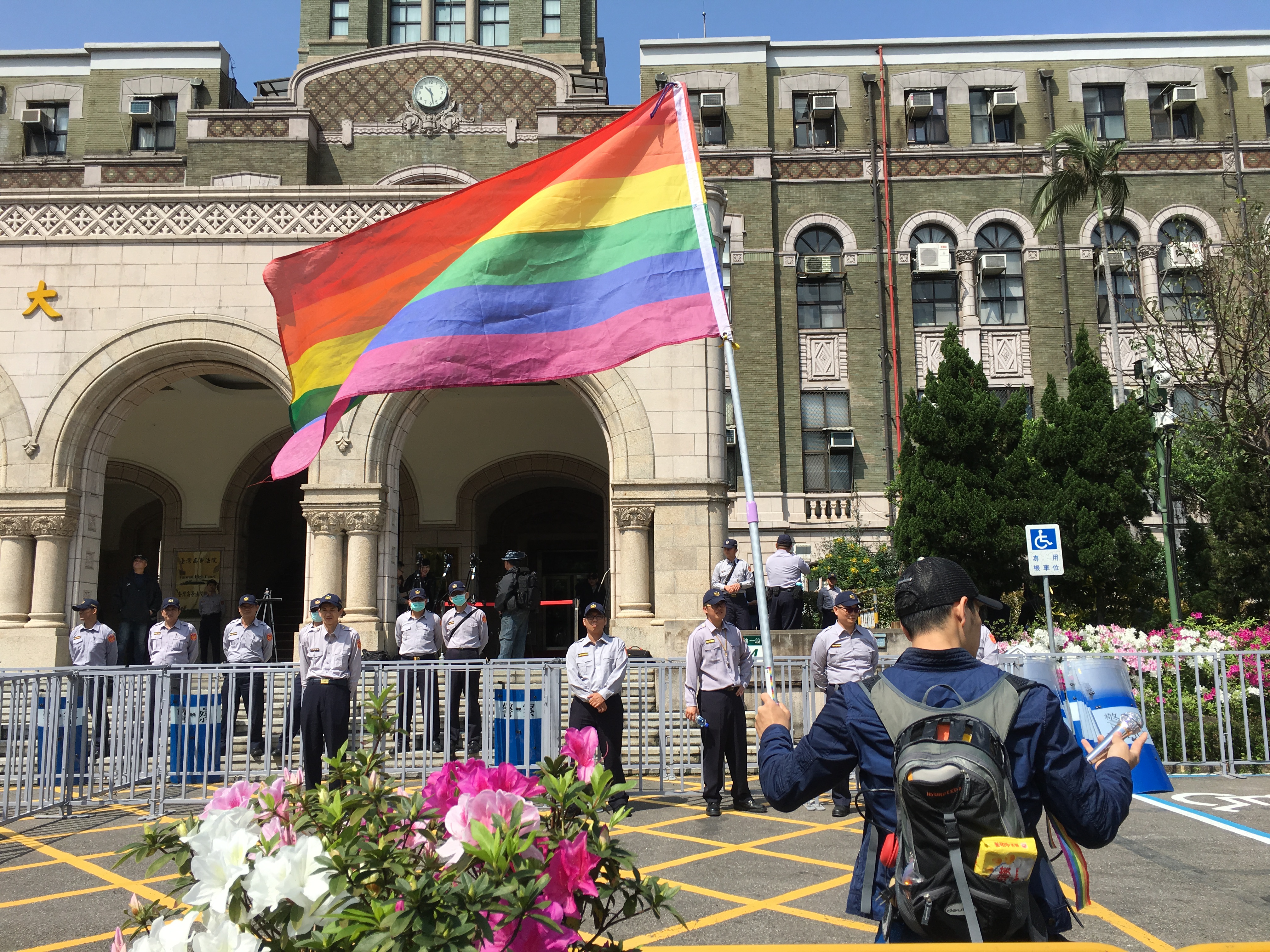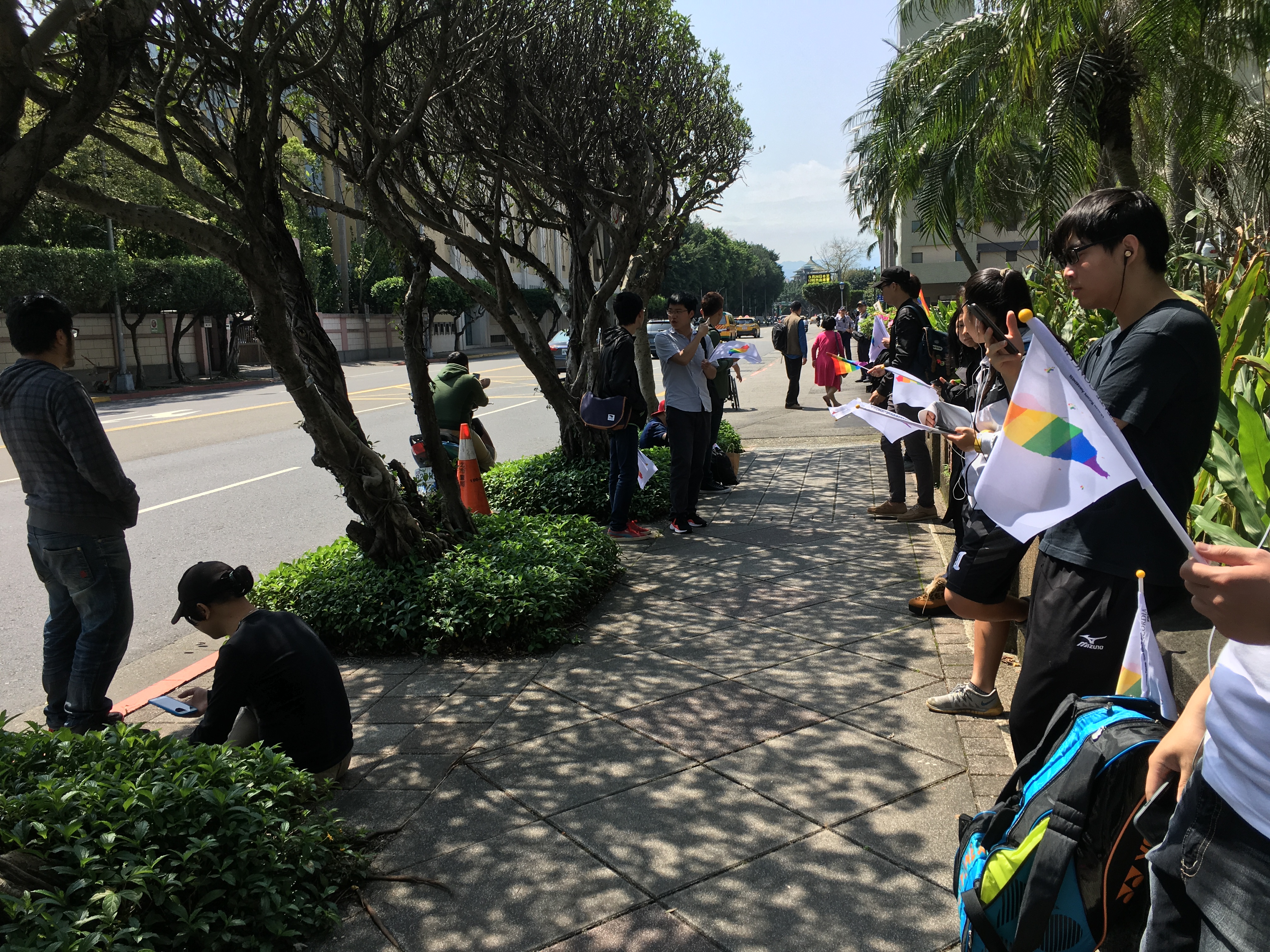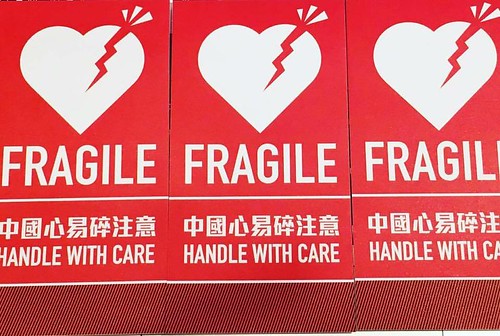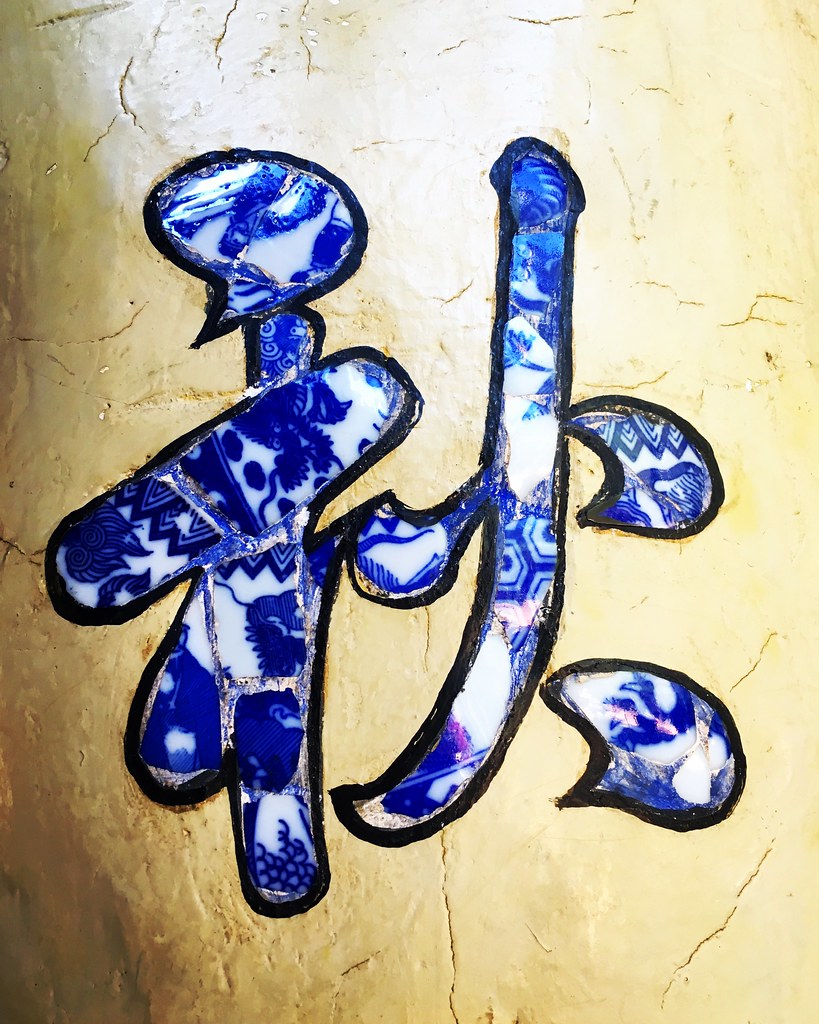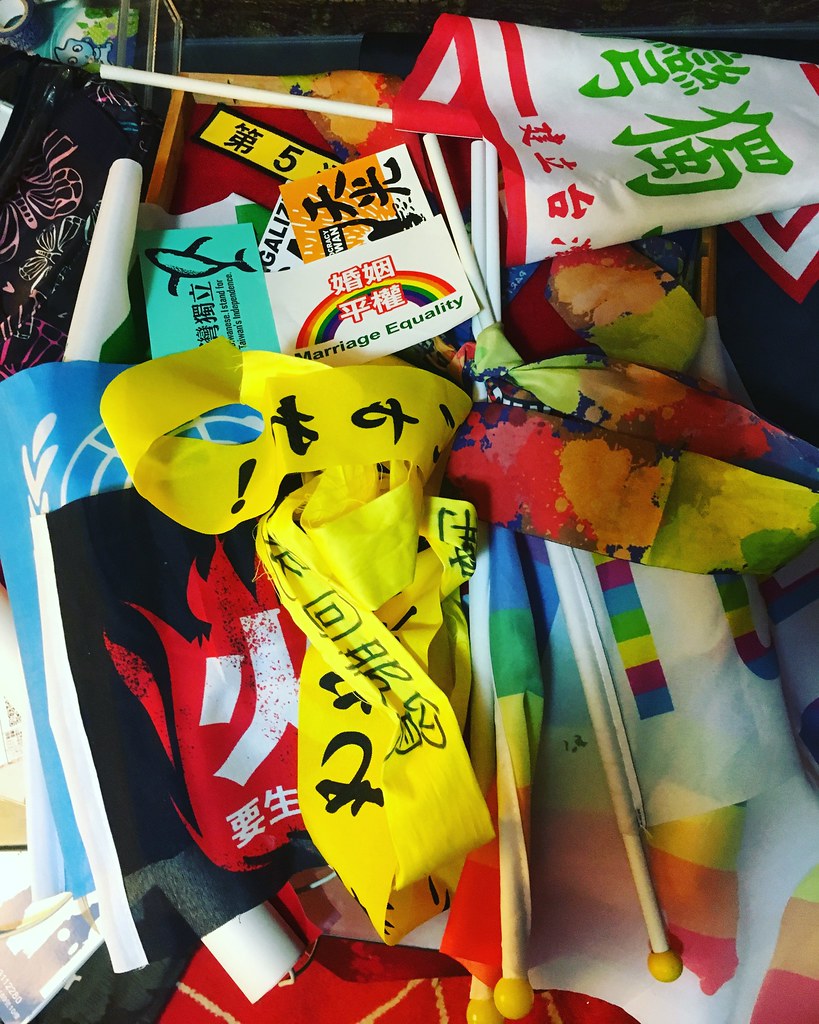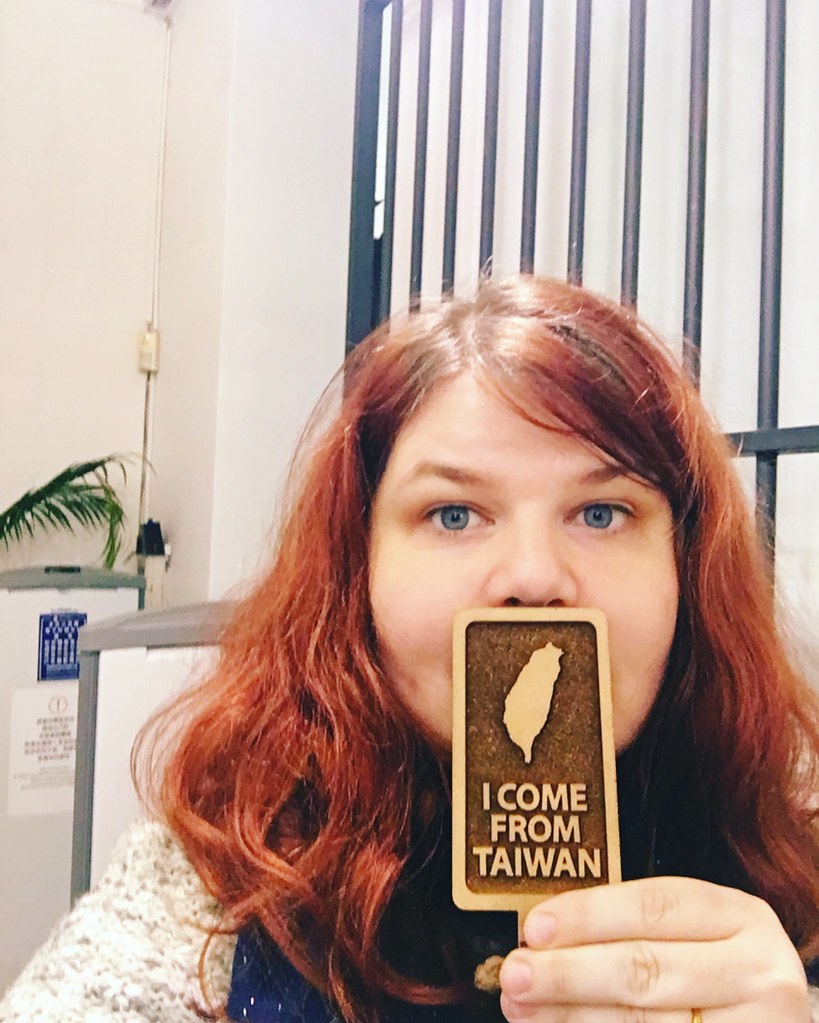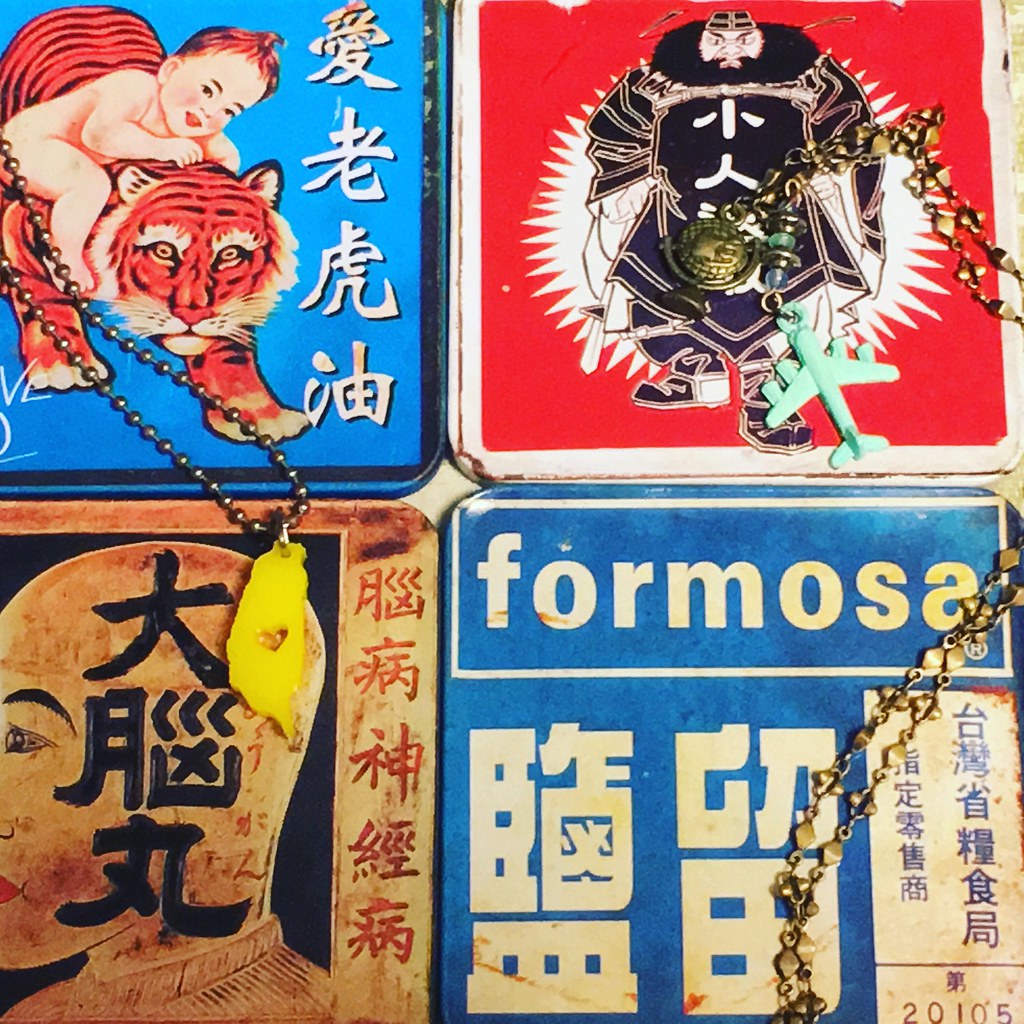I'll let this post stand as a monument to remind myself and others not to believe things too quickly, and also because - the comments that precipitated the post notwithstanding, I actually would like to make the dual points that 1.) every person who continues to live their life and build their country with Chinese missiles pointed at them is, in fact, risking their life and we'd best not forget that, and 2.) Taiwan is already independent, so discussions on whether it "should be" that way are irrelevant.
These things are true regardless of what Yates or anyone else says, but you deserve to know the truth about the interview.
I can't say I'm particularly shocked. Not because I think he's a moron, and although I appreciate his support of Taiwan, he is a conservative and he did give a deeply unimpressive speech once that started out as one long nyah-nyah our guy won, when "their guy" is one of the worst people in the world. While it is, or at least once was, possible to vote Republican and still be a reasonable person, I genuinely do think typical American conservative arguments tend to be deficient in both morality and reason. I would say this is a new phenomenon, but it's been going on since Goldwater, so perhaps not.
You may wonder why I care enough about some random thing he said while being quickly interviewed, which is not likely to make it past the Taipei Times. In part it's because this is a sadly common belief, especially in the West (where it is really easy to say because we're done with all the dying and are not the ones risking our lives unless we choose to enter mostly unnecessary wars). I want to puncture it right now. It's also because if this is the garbled muck coming out of the mouth of a friend of Taiwan, we have a problem - a big one. It must be addressed.
Anyway, let's look at the stupid thing he said. (I'm assuming Tom Lee wouldn't just make this up whole-cloth).
"When I asked why the US would not support Taiwanese independence to keep it from being annexed by China, Yates said Taiwan is not ready for independence like the US’ founders, who vowed to defend the US Declaration of Independence with their lives, their assets and their sacred honor.
If Taiwanese were willing to trade their lives, assets and sacred honor for Taiwanese independence, they would win the support of the international community, but the nation is not ready for that."
Yo...no.
First of all, what makes him think the Taiwanese are not willing to trade their lives, should it come to it. This is a country about which it was once said "every three years a rebellion, every five years ar revolt" (or something like that). Do you really think Taiwan has no fighting spirit? They've been fighting a long cold war for over a generation. As a "friend", he should know this.
I would like him to understand as well that the Taiwanese are risking their lives. Simply by existing, building their country, electing a president China doesn't like, and refusing to give up despite being so obviously outgunned, with over a thousand missiles pointed straight at them, every single Taiwanese person who does not flee the shores of their country is showing, on some level, a willingness to risk everything for the freedom of their country.
Please, Mr. Yates, do not underestimate that. It is one of the things I love most about Taiwan.
Secondly, Taiwan is already independent and Stephen Yates of all non-Taiwanese people should know that. What it lacks is recognition of that independence.
First of all, what makes him think the Taiwanese are not willing to trade their lives, should it come to it. This is a country about which it was once said "every three years a rebellion, every five years ar revolt" (or something like that). Do you really think Taiwan has no fighting spirit? They've been fighting a long cold war for over a generation. As a "friend", he should know this.
I would like him to understand as well that the Taiwanese are risking their lives. Simply by existing, building their country, electing a president China doesn't like, and refusing to give up despite being so obviously outgunned, with over a thousand missiles pointed straight at them, every single Taiwanese person who does not flee the shores of their country is showing, on some level, a willingness to risk everything for the freedom of their country.
Please, Mr. Yates, do not underestimate that. It is one of the things I love most about Taiwan.
Secondly, Taiwan is already independent and Stephen Yates of all non-Taiwanese people should know that. What it lacks is recognition of that independence.
Why would the Taiwanese "trade their lives" for something they already have?
It's one thing to fight for freedom and be willing to die when you don't have it, and want it. It's another to do that when you already have freedom, and all you are asking for is recognition of same. Nobody should have to trade their life to get other countries to recognize what is already true about their own.
Frankly, it would be a dumb move to do so. This is where I think his conservatism is showing: everything is a battle, and you have to be willing to die for your cause - or at least, it's OK for people who won't suffer to tell those who will that they should. No thought given to the complexities of why that's a bad idea.
There seems to be an assumption here that, were the Taiwanese to plunge headlong into a war simply to be recognized for what it already is, the rest of the world would rally behind them because they are standing up ~*~For Freedom!!!~*~ This is another attitude I would link to conservatism - lots of rah-rah patriotism and 'standing up for your country and the world will stand with you' talk, and it's simply wrong. "Coalition of the Willing" wrong. The only way Taiwan is going to rack up friends is by doing literally the exact opposite of that.
The US has said time and time again that their "position" is a peaceful resolution. A situation in which the Taiwanese would have to "trade their lives" is by definition not a peaceful one.
If what he means instead is that Taiwan should be willing to show that its people are willing to die for their cause, well, that would cause the international media, who already think that problems with China either appear from thin air (they don't - they appear from China) or that they are caused by Taiwan (they aren't - they are caused by China), to pitch a fit about how Taiwan is causing "tensions". It would cause clucks of disapproval from around the world, and you know that.
It's one thing to fight for freedom and be willing to die when you don't have it, and want it. It's another to do that when you already have freedom, and all you are asking for is recognition of same. Nobody should have to trade their life to get other countries to recognize what is already true about their own.
Frankly, it would be a dumb move to do so. This is where I think his conservatism is showing: everything is a battle, and you have to be willing to die for your cause - or at least, it's OK for people who won't suffer to tell those who will that they should. No thought given to the complexities of why that's a bad idea.
There seems to be an assumption here that, were the Taiwanese to plunge headlong into a war simply to be recognized for what it already is, the rest of the world would rally behind them because they are standing up ~*~For Freedom!!!~*~ This is another attitude I would link to conservatism - lots of rah-rah patriotism and 'standing up for your country and the world will stand with you' talk, and it's simply wrong. "Coalition of the Willing" wrong. The only way Taiwan is going to rack up friends is by doing literally the exact opposite of that.
The US has said time and time again that their "position" is a peaceful resolution. A situation in which the Taiwanese would have to "trade their lives" is by definition not a peaceful one.
If what he means instead is that Taiwan should be willing to show that its people are willing to die for their cause, well, that would cause the international media, who already think that problems with China either appear from thin air (they don't - they appear from China) or that they are caused by Taiwan (they aren't - they are caused by China), to pitch a fit about how Taiwan is causing "tensions". It would cause clucks of disapproval from around the world, and you know that.
He contradicts himself, and then says as much, later on in the same article:
Does he really think that the saber-rattling he seems to be calling for, which would be more likely to lead to a war that Taiwan would lose, is a better idea? Isn't he a diplomat?
Thirdly, he puts the "founders" (the founding fathers - slaveowners and at least one rapist, none of whom thought women deserved a voice in politics) up on a pedestal that most people well-read in history know they don't entirely deserve. A very bright young Armenian woman I met in Alaverdi who asked me what I thought of Thomas Jefferson ("He's a complicated figure. He did some important things but I do not worship him, or anyone") knew that. Yates should too.
Does he also think that, "founding fathers" aside, that all Americans would be willing to risk their lives for their country? Does he think we'd do so even if the war were unwinnable? Are we supposed to go all Les Miserables and die on barricades we have no real hope of defending, were it to come to that? Does he really have such an inflated sense of how "great" America is, or was, compared to the rest of the world? Is he so secure in his own comfortably independent nation that he feels fine telling people halfway around the world whose country faces an overwhelming international threat that he, a person from a country that does not face any such international threat, is OK but they should be willing to die?
Most people wouldn't do that, and I can't blame them. But all people deserve freedom. Yes, all people. Even the ones who play a long game rather than get into unwinnable fights.
So, yes, I am deeply disappointed in this pile of nonsense from a "friend of Taiwan."
Do better, Stephen Yates. I don't like your ideology very much (I mean, I'm a liberal), I could never vote for your party (I guess I'm crazy to like affordable access to health care, including reproductive health care - your party's platforms are a part of why I left the US in the first place and they actively harm my friends). I do not think that your ideology, nor that of any other pro-Taiwan Republican, is compatible with the mostly - but not entirely - liberal and progressive outlook of the new face of pro-Taiwan local activism, and I do think this is going to cause problems. I suspect the lot of you support Taiwan without really understanding what Taiwan is about. Your former boss is quite literally a war criminal and one of the worst people in the world and you seem weirdly okay with that, and your current president is a magnificent douchelord and you seem OK-enough with that too - and I am not OK with your being OK with either of those - but you are, for better or worse, one of the best friends Taiwan has.
I expect better than this from someone Taiwan should be able to call a "friend".
“In my opinion, whether Taiwan becomes independent will not depend on a referendum or an official declaration announcing the founding of a Republic of Taiwan.
“Taiwan is independent because the Taiwanese are their own masters. Taiwanese should not be too pessimistic about their diplomatic situation, because, in addition to diplomatic space, there is also political space, economic space and other kinds of space where it can put its advantages to good use.”
Giving him the benefit of the doubt that he just garbled his words a bit, it's still dumb to say "Taiwan is not ready for independence" when Taiwan is already independent. Of course Taiwan is "ready" for independence, because - repeating myself because it cannot be emphasized enough - it already has it and the country is run, if not perfectly, at least well enough to keep itself going as a first world nation, especially considering its circumstances.
One can be ready to risk one's life for something without being stupid enough to run into near-certain death. Right now, a war against China is not winnable for Taiwan. If you enter that war, especially as a fighter, you will most likely die or suffer a worse fate. That's not "being ready" because you "are willing to trade your life", that's just stupid.
To put it in television terms, Taiwan is not Robb Stark. It is Sansa Stark, and that's exactly what it needs to be if it has any hope of eventually coming out on top.
To put it in television terms, Taiwan is not Robb Stark. It is Sansa Stark, and that's exactly what it needs to be if it has any hope of eventually coming out on top.
Taiwan, fortunately, is much smarter than that and is playing a longer game in which millions of its citizens don't die in a costly and devastating war, for the best possible chance at a good outcome for an independent Taiwan. Whether or not they will succeed is for the future to answer, but honestly, while I can think of improvements to their strategy, I can't think of a better overall strategy for the country.
Does he really think that the saber-rattling he seems to be calling for, which would be more likely to lead to a war that Taiwan would lose, is a better idea? Isn't he a diplomat?
Thirdly, he puts the "founders" (the founding fathers - slaveowners and at least one rapist, none of whom thought women deserved a voice in politics) up on a pedestal that most people well-read in history know they don't entirely deserve. A very bright young Armenian woman I met in Alaverdi who asked me what I thought of Thomas Jefferson ("He's a complicated figure. He did some important things but I do not worship him, or anyone") knew that. Yates should too.
Does he also think that, "founding fathers" aside, that all Americans would be willing to risk their lives for their country? Does he think we'd do so even if the war were unwinnable? Are we supposed to go all Les Miserables and die on barricades we have no real hope of defending, were it to come to that? Does he really have such an inflated sense of how "great" America is, or was, compared to the rest of the world? Is he so secure in his own comfortably independent nation that he feels fine telling people halfway around the world whose country faces an overwhelming international threat that he, a person from a country that does not face any such international threat, is OK but they should be willing to die?
Most people wouldn't do that, and I can't blame them. But all people deserve freedom. Yes, all people. Even the ones who play a long game rather than get into unwinnable fights.
So, yes, I am deeply disappointed in this pile of nonsense from a "friend of Taiwan."
Do better, Stephen Yates. I don't like your ideology very much (I mean, I'm a liberal), I could never vote for your party (I guess I'm crazy to like affordable access to health care, including reproductive health care - your party's platforms are a part of why I left the US in the first place and they actively harm my friends). I do not think that your ideology, nor that of any other pro-Taiwan Republican, is compatible with the mostly - but not entirely - liberal and progressive outlook of the new face of pro-Taiwan local activism, and I do think this is going to cause problems. I suspect the lot of you support Taiwan without really understanding what Taiwan is about. Your former boss is quite literally a war criminal and one of the worst people in the world and you seem weirdly okay with that, and your current president is a magnificent douchelord and you seem OK-enough with that too - and I am not OK with your being OK with either of those - but you are, for better or worse, one of the best friends Taiwan has.
I expect better than this from someone Taiwan should be able to call a "friend".


